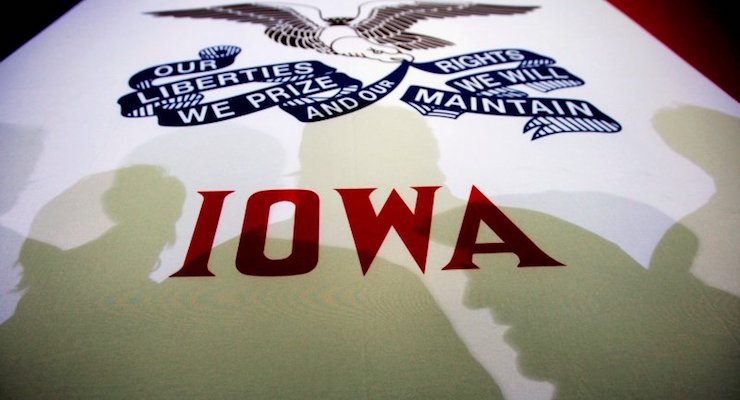
Iowa Caucus Process, Impact on Nomination and General Election

(Photo: Brian Snyder/Reuters)
Following months of campaign events, robocalls, mailers, polls and pontificating, the 2016 Iowa caucus will finally begin Monday night. Since 1972, Iowans have gathered in public places like schools, libraries and community centers to listen to neighbors make their case for their candidate.
Iowa Republicans and Iowa Democrats elect their delegates differently, but neither side can typically expect to have a quick, early night. When voters arrive at the caucus site at 7 p.m. local time, they will be asked to congregate in their preferred candidate’s corner. Caucus captains will make speeches and lobby to persuade voters to support their candidate.
Iowa Republicans use a secret ballot system to elect their delegates, a difference the supporters of Donald Trump have been underscoring in the final 48 hours. As we’ve previously argued, social desirability bias has played a real role in explaining the desperately in Trump’s poll numbers (depending on pollsters) in other Iowa and states.
Iowa Democratic caucus-goers gather into small groups according to the candidate they support, which is not at all a secretive process. Your friends, neighbors and mailman know who you are supporting. If a Democratic candidate receives less than 15% support in the room, or caucus site, the candidate is eliminated. Even before this is official, an informal process begins by which his or her supporters are courted by caucus-goers representing other candidates’ groups.
This may very well play a role Monday night with the supporters of former Maryland Gov. Martin O’Malley. If he fails, as we predict he will, to meet the threshold to be considered “viable,” then organization can make all the difference if the race is close. Hillary Clinton currently leads Sen. Bernie Sanders by just 3.3% on the PPD average of Iowa caucus polls and, if the margin is even closer, then O’Malley’s supporters could mean the difference between victory and defeat for the socialist senator.
But Iowa caucus-goers do not elect delegates to the national convention like most other states, but instead elect lower-level precinct delegates. These individual precinct delegates will go to one of 99 county-level conventions to again advocate on behalf of the candidate they supported during one of the 1,681 precinct-level elections.
From there, delegates are chosen for a congressional district-level caucus and finally a statewide convention, where delegates to the national convention are finally selected in late May.
Sometimes, this can result in a totally different candidate receiving the state’s delegates at the national convention than the one declared the winner on caucus night. In 2012, for instance, Ron Paul ended up with the state’s delegates even though Sen. Rick Santorum was declared the official winner of the Iowa caucus. Organization, far more than in a traditional primary, matters.
What the Iowa Caucus Means for the Nomination, General Election
Republican Party
Iowa Republican caucus-goers have a rather poor track record of predicting the eventual party nominee. The winner of the Iowa Republican caucus has went on to earn the nomination just twice in six contested races since 1980: Robert Dole in 1996 and George W. Bush in 2000. Of course, of those two, only President Bush went on to win the White House.
In 1980, George H.W. Bush eked out a win in Iowa over Ronald Reagan after he made a conscious campaign decision to skip the state, altogether. But, in 1988, Iowa Republicans chose Dole over Bush, the sitting vice president, heir and eventual successor to Reagan’s new Republican Party. In 2008, Gov. Mike Huckabee won with the largest share ever before eventually losing the nomination to Sen. John McCain and, in 2012, Romney lost the caucus by 8 votes.
Democratic Party
Unlike their GOP counterparts, Iowa Democrats hold a nearly perfect track record of predicting the eventual party nominee in six contested races, missing the mark only twice in 1992–when Iowa’s own Tom Harkin defeated Bill Clinton in the caucuses–and in 1988, when Richard Gephardt won.
However, when it comes to choosing the general election winner, Iowans have predicted correctly twice: Jimmy Carter in 1976 and Barack Obama in 2008.
In 1976 and 1980, Carter used the Hawkeye State caucuses to earn and keep the right to carry his party’s banner. In 1984, the state chose Walter Mondale, who eventually went on to lose to President Reagan in the general election. In 2000, then-Vice President Al Gore won the Iowa Democratic caucus and his party’s nomination, though lost to George W. Bush in November, as did John Kerry.







